Song to listen: Kaoma - Lambada
If you visited Portugal even once, even on short time period, there are several things that comes on your mind when you hear it's name. Portugal is beaches. Portugal is good wines. Portugal is surfing. Portugal is seafood. Portugal is azulejo... Azulejo? Yes, azulejo.
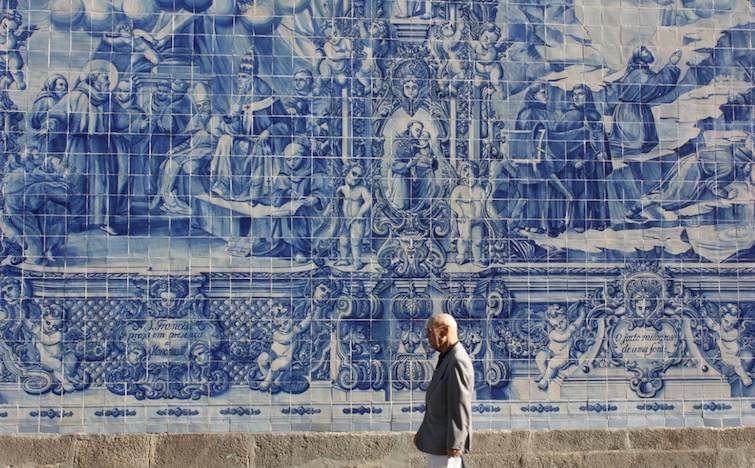
Azulejo means “small polished stone” (az-azulayj) on Arabic so we can conclude that, as the origin of the word, azulejos has it's Arabic roots. But let's start from beggining.
What are azulejos?
Azulejos small stones usually painted with some geometric patterns or even pictures and they make pattern mosaic and can be found on house or building facades, benches, house numbers, fountains, interior walls, inside the churches on the alters...
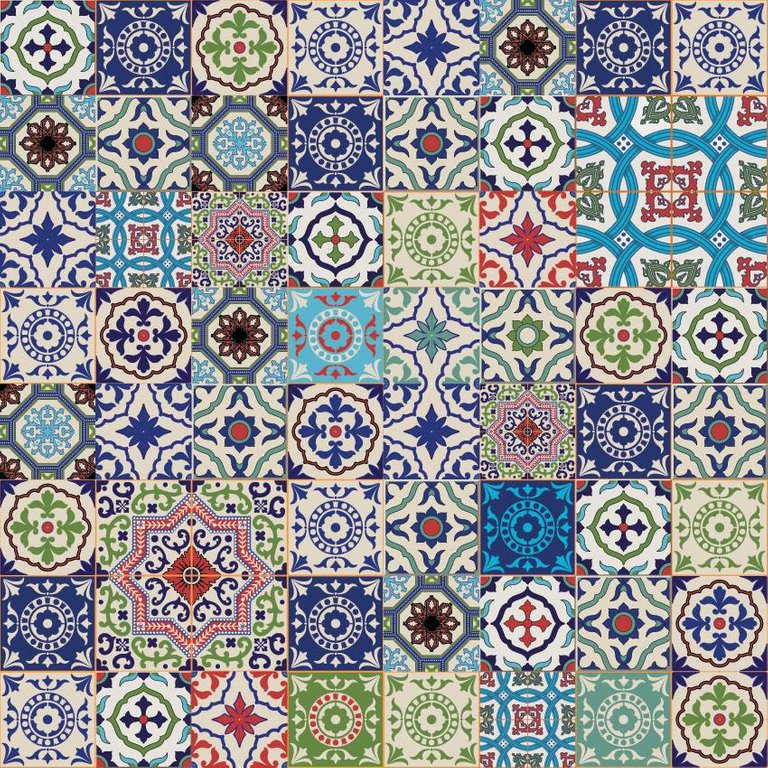
It is simple a painted ceramic tile and they can be found also in all the Portuguese and Spanish colonies, and even in Liguria in Italy, but all the story started in Egypt.
Portuguese King Manuel I. brought azulejo culture to Portugal after visiting Seville and Alhambra, Spain in 1503. and decided that his palace in Sintra will be decorated in the sam way – ceramic tiles. The beliefs are that Portuguese adopted the tradition of “horror vacui” - fear of empty spaces – and covered all the walls with azulejos.
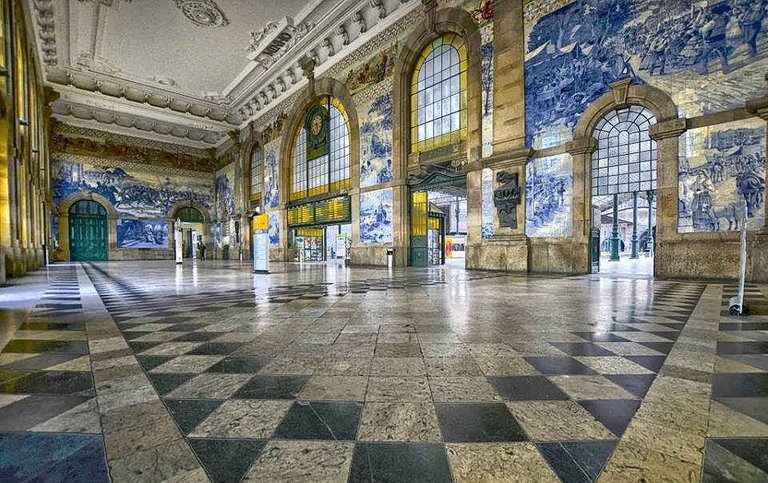
In the beggining they were decorated with simple palete colors such as blue and white, and later some more color appeared like yellow (gold) and green. Blue and white were fashionable at that time, 15th - 18th century during the Age of Discoveries. Today we can find all kind of Azulejos with all different colors and patterns or even pictures painted on them. Most usual symbols painted on azulejos are birds and leaves, which believes, was inspired by Asians and their fabrics.
Golden age of the azulejo is considered in between late 17th and early 18th century when mass production started, not only for Portugal, but also for Brasil as Portuguese colony in that time.
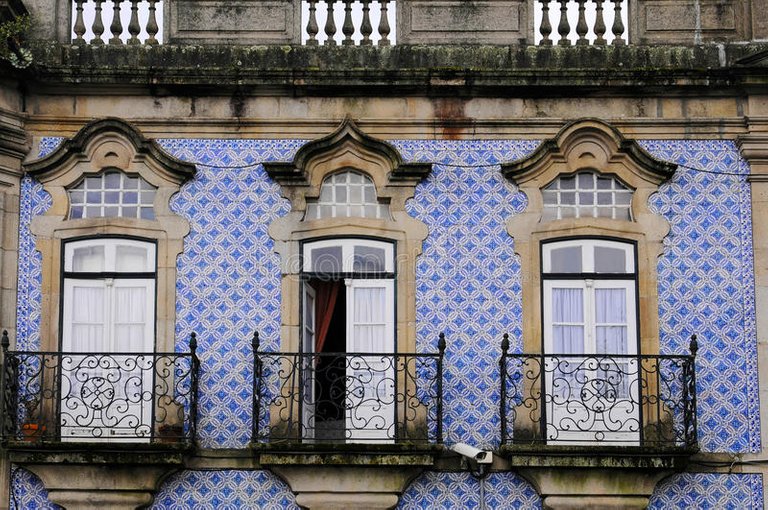
Differences in design – patterns and colors – was made after devastating earthquake in 1755., which literally destroyed whole city of Lisbon. Simple design way from King Manuel I times to more advance Marques de Pombal times. Fun fact is that after the earthquake, the facades with the tiles on it preserved better, so this is one more reason why Portuguese continued their tradition on the new buildings.
Azulejos became typical Portuguese way to tell the story about their history, culture and religion. As the decoration, they are tourist attraction and one of the most memorable thing after visiting Portugal.
Today azulejos are Portugal's trademark. Apart from churches and building facades now all the bars, restaurants, railway, metros, kitchens, homes, streets has azulejos as their decoration.
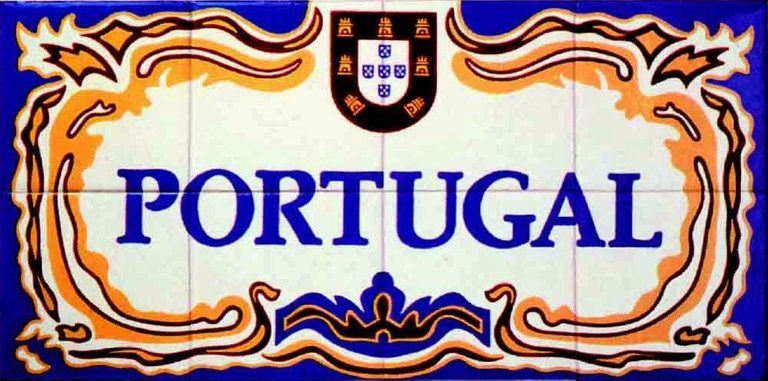
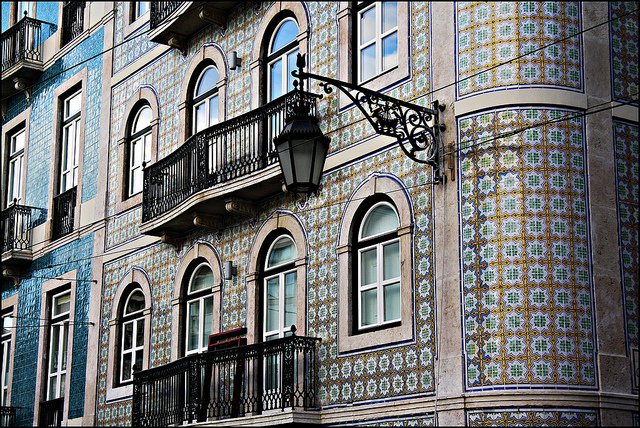
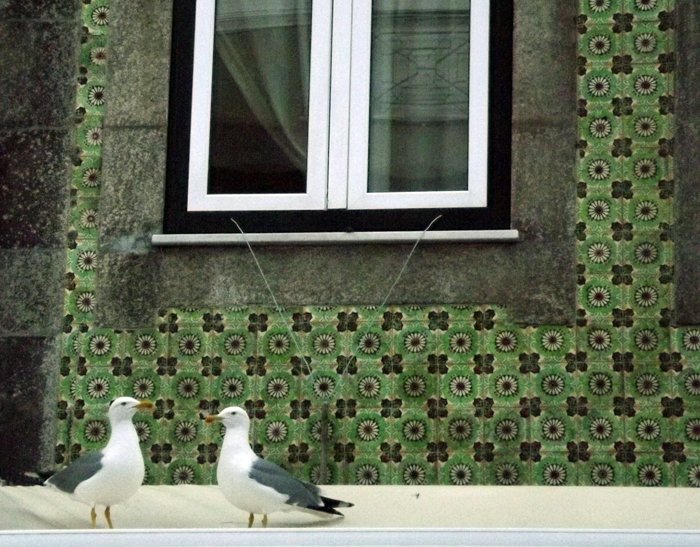
Till the next time...
... kind regards!
GG
Congratulations @gingergeorge! You have completed some achievement on Steemit and have been rewarded with new badge(s) :
Click on any badge to view your own Board of Honor on SteemitBoard.
To support your work, I also upvoted your post!
For more information about SteemitBoard, click here
If you no longer want to receive notifications, reply to this comment with the word
STOP